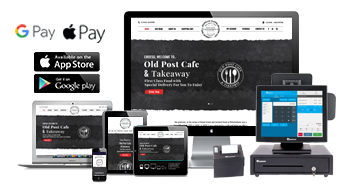Table of Contents

In today’s digital age, having an online presence is crucial for restaurants to reach new customers and grow their business. With over 90% of searches in the UK conducted on Google, optimizing your website for Google’s search engine results pages (SERPs) is key to driving website traffic and reservations.
Implementing search engine optimization (SEO) best practices can help your website rank higher in Google.co.uk results for relevant searches like “restaurants near me” or “best Indian restaurant in Manchester”.
Higher Google SEO rankings lead to increased visibility and website traffic from potential local customers searching for dining options. An effective SEO strategy is therefore essential for restaurants in the UK looking to boost online presence, gain new customers and increase bookings and sales.

B. Restaurant Target audience
This guide is intended for restaurant owners, managers and marketing teams in the UK who want to improve their organic search visibility and website traffic. The recommendations and SEO tips provided aim to help restaurants enhance on-page content, optimize technical website elements, build local relevance and authority, and track success.
C. Purpose of the guide
The purpose of this SEO guide is to explain key optimization strategies and best practices specifically for UK restaurant websites targeting higher search rankings on Google.co.uk. By implementing the recommendations in this guide, restaurants can improve website content, authority, technical elements and overall SEO to gain more visibility and customers from Google searches.
II. Understanding SEO for Restaurant Websites
A. What is SEO?
SEO stands for search engine optimization. It is the process of improving different aspects of a website to rank higher in search engines for relevant keyword searches.
For restaurants, keywords may include:
- Local terms like “restaurants in Brighton”
- Cuisine terms like “Chinese restaurants in Leeds”
- Specific restaurant names like “Luigi’s Pizzeria London”
The goal is to appear on the first page of search results for queries potential customers are likely to searches. The higher up on page one, the better, as studies show the top 5 organic results get about 70% of clicks.
B. Why focus on Google.co.uk?
Google has over 90%of the market share of search in the UK. So for restaurants wanting website visitors from search, Google.co.uk optimization should be the primary focus. Ranking on page one of Google is vital for driving website traffic and new customers.
C. Key SEO concepts for restaurants
There are three main elements of SEO that restaurants need to optimize:
- On-page – This includes website content, URLs, site architecture, etc.
- Off-page – Earning backlinks, citations, reviews, social media, PR.
- Technical – Site speed, mobile optimization, HTTPS, etc.
This guide covers recommendations in all three areas with the specific goal of ranking higher in Google.co.uk for relevant local and cuisine-related searches.
III. Keyword Research
Thorough keyword research is crucial for understanding what terms your ideal customers are searching for and getting your website to rank for those high-value keywords.
A. Identifying relevant keywords
Start by brainstorming a list of Seed Keywords – the core terms you want to rank for. These may include:
- Your restaurant name, like “Luigi’s Pizzeria London”
- Location terms like “restaurants in Brighton”
- Cuisine terms like “sushi places in Manchester”
- Food item keywords like “best fish and chips Glasgow”
You can then use keyword research tools like Google’s Keyword Planner, SEMRush or Ahrefs to expand this list and find long-tail variations and related keywords.
B. Long-tail keywords for local SEO
Keywords – more specific multi-word phrases like “family friendly seafood restaurants in York” – often have less competition and should be a focus for restaurant industry. Include key local areas, cuisine types and attributes like “casual”, “open late”, etc.
C. Competitive analysis
Analyze competitors ranking for your target terms. This can help identify optimization opportunities and also give keyword difficulty estimates. Aim to rank for a mix of high and medium difficulty keywords.
IV. On-Page SEO
Optimizing your website pages with specific keywords and content is crucial for good Google rankings. Follow these on page best practices:
A. Optimizing website structure
1. URL structure
- Keep URLs short and descriptive
- Avoid generic URLs like http://www.domain.com/page1.html
2. Navigation and menus
- Include specific keywords in main site navigation and restaurant menus
- Ensure site architecture is clean and allows easy crawling for Googlebots
B. High-quality content
1. Importance of menu descriptions
- Write detailed and enticing menu item descriptions – these can rank well for food-related keywords
- Use keywords appropriately – don’t over-optimize or write unnaturally
2. Blogging for local relevance
- Regularly publish local-focused blog content like “Best Date Night Restaurants in Birmingham”
- Internal linking to relevant pages using keywords in anchor text
C. Mobile optimization
- Use a responsive design – website resizes for all devices
- Avoid interstitials and popups that worsen mobile user experience
D. Page load speed and user experience
- Fast page speed improves customer experience and SEO
- Optimize images, enable caching, minify code and compress files
V. Local SEO
Optimizing for local search visibility is key for restaurants trying to attract nearby customers.
A.Restaurant Google My Business (GMB) setup and optimization
- Complete your Google My Business Profile 100% – add photos, descriptions, menus
- Include your full address, phone number and opening hours
- Categorize correctly based on cuisine types
- Respond to reviews and messages
B. NAP (Name, Address, Phone) consistency
Use the exact same business name, address and phone number across directories, citations and all online properties. This signals you are the authority business for Google.
C. Local citations and online directories
- Register your restaurant on UK citation sites and directories like TripAdvisor, Yell, Cylex, Zomato
- Also build citations on global sites like Foursquare and YP.com
D. Customer reviews and ratings
- Encourage customers to leave positive Google reviews
- Reply to negative reviews to resolve issues transparentlyes
VI. Technical SEO
With Google’s algorithms emphasizing website technical health, restaurants must get the basics right:
A. Site architecture and XML sitemaps
- Ensure a proper crawlable site structure through XML sitemaps
- Make it easy for Googlebot to index all important pages
B. Schema markup for restaurants
- Implement restaurant markup for richer search snippets
- Can include menu, address, ratings, pricing, etc.
C. HTTPS and security
- Upgrade to HTTPS – SSL certificate secures your website
- Provides speed boost and required for full SEO benefits
D. Redirects and broken links
- Fix 404 errors and broken links – these hurt customer experience
- Set up 301 redirects properly when pages move or get deleted
VII. Link Building and Off-Page SEO
Gaining backlinks remains important for SEO authority and rankings. Use these tactics:
A. Local backlinks and partnerships
- Build links from UK local business directories and restaurant sites
- Develop partnerships with local businesses – link exchange potential
B. Social media engagement
- Be active on Facebook, Instagram, Twitter for area restaurants
- Link to your website content from social platform
C. Online PR and guest blogging
- Reach out to local media, bloggers, magazines for link opportunities
- Write and contribute guest posts with links on relevant sites
VIII. Monitoring and Analytics
Track SEO progress and find issues through:
A. Google Analytics setup
- Install Analytics tracking code on all pages
- View traffic sources, top landing pages, conversions
B. Google Search Console
- Submit sitemap and enable indexing in Search Console
- Monitor crawl stats, manual penalties, algorithm updates
C. Tracking and measuring success
- Set up dashboards to monitor rankings, organic traffic, conversions
- Track progression for target keywords weekly and monthly
D. Making data-driven improvements
- Use analytics data to identify optimization opportunities
- Double down on pages and tactics driving the most traffic
IX. Content Marketing Strategy
Publishing fresh and relevant content on your website blog can help drive search traffic and attract local customers.
A. Creating a content calendar
- Build a 3-6 month content calendar for your restaurant blog
- Plan topics and keywords to target at specific times
B. Blog post ideas for websites
Content ideas:
- “Best Places for Birthday Dinners in Manchester”
- “Top 10 Most Romantic Restaurants in Edinburgh”
- “Our Freshest Summer Cocktail Recipes”
- “Behind the Scenes of our Family-Run Restaurant”
C. Promoting content on social media
- Share blog posts on Facebook, Instagram, Twitter
- Engage followers with relevant title tags and images
X. Paid Advertising and PPC
While SEO focuses on organic rankings, paid search ads on Google can also drive website traffic and customers.
A. Google Ads for restaurants
- Target local keywords and demographics with Google Search campaigns
- Run Display Network ads to reach users on relevant sites
B. Budgeting and targeting
- Set monthly paid search budget based on goals and resources
- Continually test new keywords and optimize targeting
C. Measuring ROI
- Track conversion value from phone calls, reservations, orders
- Evaluate campaign ROI compared to ad spend
XI. Conclusion
A. Recap of key takeaways
- Optimize website content, technical elements and authority signals for Google rankings
- Perform keyword research to identify relevant local search terms
- Implement local SEO tactics like Google My Business and citations
- Produce blog and social content to attract nearby diners
- Monitor analytics and SEO performance to refine efforts
B. The ongoing nature of SEO
SEO is an ongoing process. Search algorithms and trends evolve continually. Restaurants must consistently apply best practices to maintain and improve Google rankings and organic growth over time.
C. Encouraging action
Implementing the SEO strategies in this guide can deliver tremendous benefit for UK restaurants. The time to take action is now. Higher local SEO visibility will bring in more website traffic, new customers and increased reservations and sales.
XII. Additional Resources
A. Recommended tools and software
- SEMrush – for keyword research and SEO audits
- Screaming Frog SEO Spider Tool – for technical audits
- Etakeaway
B. Professional SEO services for restaurants
For restaurant businesses that need dedicated SEO expertise, hiring an SEO agency or consultant specializing in the restaurant niche can be very beneficial. They stay on top of Google’s complex algorithms and will manage SEO efforts on your behalf. Services may include:
- Initial auditing and competitive analysis
- Ongoing content strategy and creation
- affiliate marketing outreach
- Technical website optimization
- Detailed reporting on rankings and traffic









